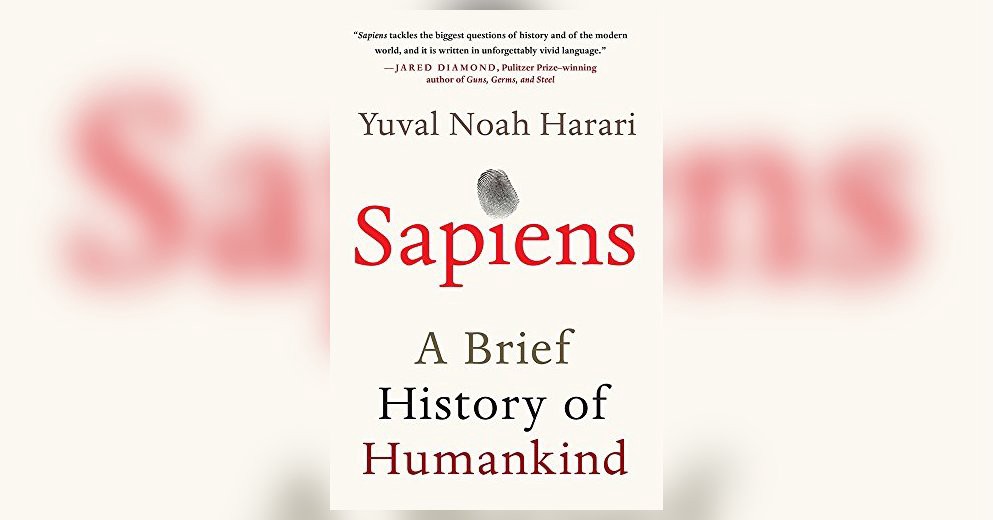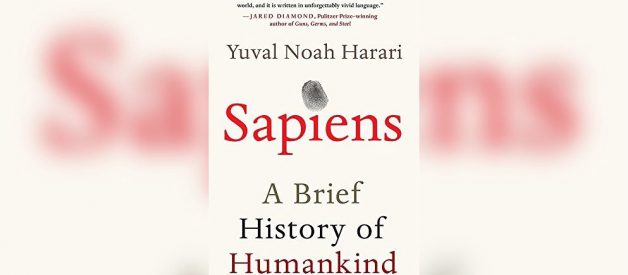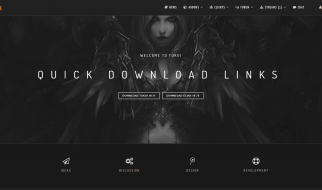
Sapiens ? A brief history of humankind (2014) explores the evolution of Homo sapiens from an insignificant animal in a corner of Africa to the ?master of the entire planet and the terror of the eco-system.?
Doesn?t sound like your everyday self-help book right? But having just finished this book it has been truly life-changing, providing not only a sense of perspective of how minuscule our time on earth has been, but importantly an understanding of the impact of our actions on the ecosystem and how critical the decisions we make today will be on the future of tomorrow.
Sapiens is arguably the most fascinating book I?ve read, exploring the most important revolutions that have shaped our history ? the cognitive revolution, agricultural revolution, industrial revolution, and the scientific revolution which we are currently experiencing.
Harari argues that the critical mindset which has enabled the scientific revolution is that for the first time in history, Homo sapiens considered that there may be things in the world we didn?t know.
Seems obvious right?
However, Harari argues that pre-modern traditions such as Islam, Christianity, Buddhism and Confucianism all asserted that everything that is important to know about the world is already known. The great gods, or the one almighty God, or the wise people of the past possessed all-encompassing wisdom which they revealed to us in scriptures or shared through stories and therefore knowledge was obtained by simply delving into ancient texts and traditions to find the answers.
It was inconceivable that the Bible or Qur?an would have missed a crucial secret of the universe, and whilst there may have been things we didn?t know, they certainty weren?t important as otherwise the Gods would have told us.
This concept now seems so foreign, and Harari argues that what actually drove the scientific revolution was the acknowledgement that there is actually collective ignorance amongst Homo sapiens regarding the very most important questions in life.
Reading this was a truly profound realisation for me, as I?ve only ever existed in a world which accepts there is so much we don?t know. In fact, this mindset has been celebrated and whilst the internet has enabled us to access more information than ever before, it?s real power is in enabling us to ask questions and collaboratively explore that which we do not know (often to only discover the answer remains unknown or at a minimum could be proven wrong if new science challenged existing assumptions).
I actually find this lack of knowledge quite liberating. It drives me in day-to-day life to have a thirst for exploration and a comfort to ask questions and admit that I am ignorant (although not always easy).
Therefore this is my first challenge to you: Embrace the mindset that we are collectively ignorant, and in the comfort of this allow yourself to be vulnerable and ask questions. We are in an age of exploration, and collaboration is the path to knowledge.
We do however need to exercise some caution, and there are some challenging questions arising around how we are using this new found power.
We?ve devastated the eco-system of nearly every corner of the earth we?ve touched, and we are now becoming the first species to ever actually play God. We are not only messing with the DNA of other species, (chickens, cows, pigs etc) but are (potentially) on the path to completely changing the genetic make-up of the Homo sapien forever.
So what do we do with this knowledge?
It was a question I pondered greatly over the past week. I think the critical question we need to ask ourselves as we move forward with this power is not only ?what can we do? but ?what should we do?. This critical overlay of ethics, needs to sit alongside possibilities, and this is something we can take into every aspect of our lives.
At a time when we are empowered with greater technology as individuals than ever before, and a greater opportunity to connect with people from anywhere in the world, it seems that so many of us are simply creating more noise, and often this shouting is simply focused on promoting ourselves.
Having read this book, it feels this obsession with individuality is far from how our species operates most effectively. Harari argues that the most critical skill of the Homo sapien that allowed our species to flourish was our ability to imagine things that didn?t exist (religions, nations) and build communities with shared beliefs who passionately worked together (inspired by a shared purpose).
Therefore, this is my second challenge for you. I challenge you to take action and make the decision to work on things that matter. Things that matter for you, things that matter for others, things that have intention and legacy and then inspire others to join you. As a species it?s in our DNA to collaborate, and to make genuine change in this world we need to work together.
So be the person who puts your ego aside and has the courage to take on the projects that matter. It will be challenging, but there will be people who?ve been waiting for someone like you to stand up. And when the inevitable moment comes when you don?t have all the answers, just remember, we are all in the age of collective ignorance and it?s ok to say ?I don?t know, but I care and I want to make a difference.?
This book had a profound impact on me, and I hope it will on you. Understanding the evolution of our species allows us to recognise a pattern of testing and learning over many millennia, and by analysing our past we can help ensure we shape a better future. With this realisation, it is now up to us to take it from here, and there is absolutely no doubt we?ll need to do it together.


